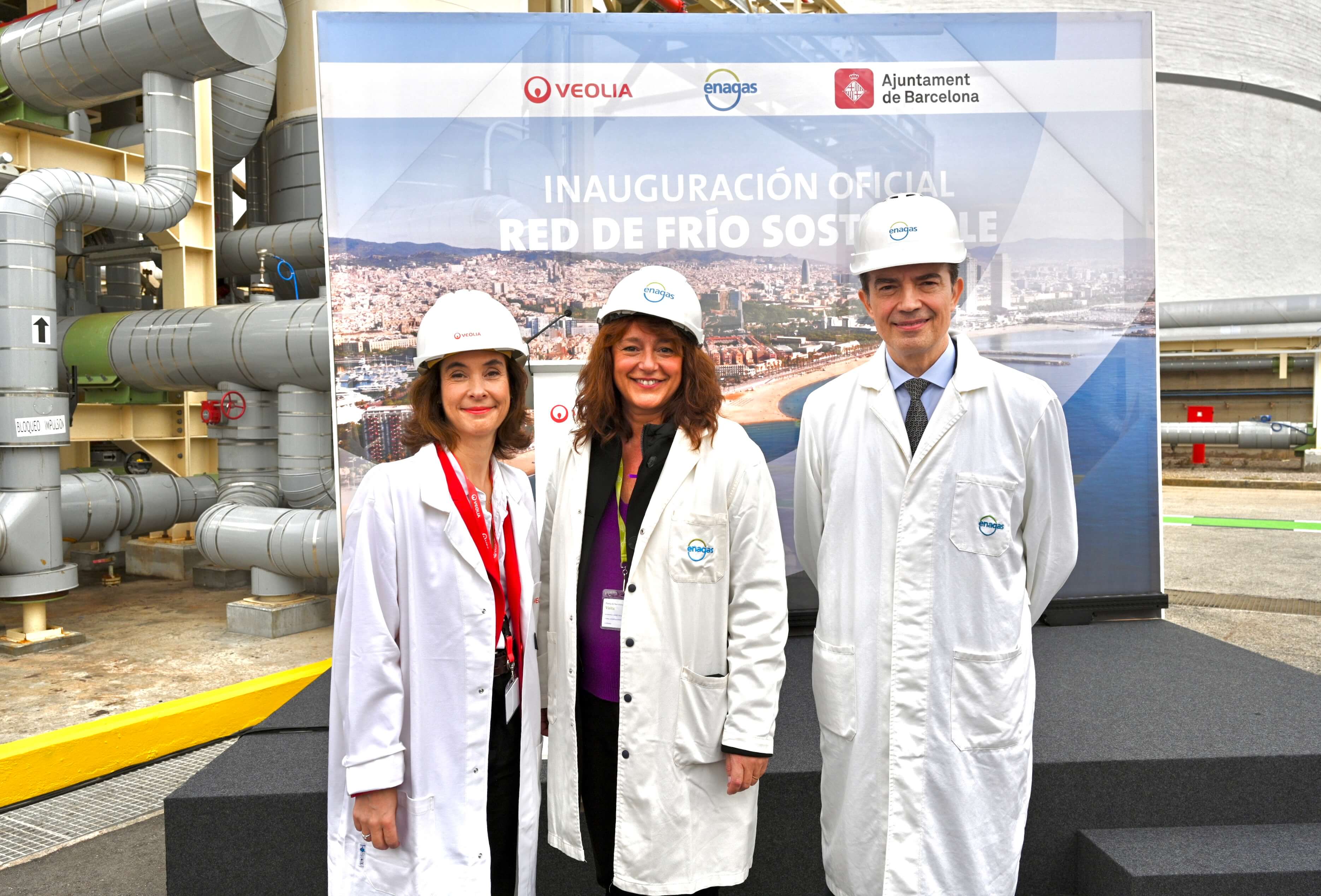Revolutionizing Energy Recovery in Barcelona: A Green Milestone at the Port
Key Ideas
- Veolia, Enagás, and Barcelona City Council unveil a pioneering solution at the Port of Barcelona, harnessing residual cold to generate 131 GWh/year of low-carbon energy, reducing CO2 emissions by 32,000 tonnes annually.
- The innovative regasification process, a joint effort of Enagás and Veolia, marks a significant step towards local, sustainable energy recovery, showcasing the potential for similar solutions worldwide.
- The project, a product of close collaboration since 2009, not only enhances the competitiveness of local infrastructures but also contributes to the urban and sustainable transformation of the Barcelona port area and its vicinity.
- Leaders from Veolia, Enagás, and Barcelona City Council emphasize the importance of energy efficiency, decarbonisation, and public-private partnerships in creating new opportunities and tackling climate change challenges.
Veolia, Enagás, and Barcelona City Council have come together to introduce a groundbreaking solution at the Port of Barcelona, focusing on harnessing residual cold for energy generation. This innovative project is already operational, producing 131 GWh per year of sustainable, low-carbon energy and preventing the emission of over 32,000 tonnes of CO2 annually. The collaborative effort between the key stakeholders highlights a commitment to reducing greenhouse gas emissions and transitioning the city towards a greener space. By recovering residual cold from the traditional LNG regasification process, this initiative not only showcases the potential for local energy recovery but also sets a precedent for global energy sustainability. The success of the project, fostered through partnerships and technical expertise, underscores the viability of local supply solutions in addressing energy sovereignty and decarbonisation challenges. Key figures from Veolia, Enagás, and Barcelona City Council have expressed optimism about the impact of this project on the competitiveness of local infrastructures and the overall transformation of the Barcelona port area. The sentiment surrounding this initiative is overwhelmingly positive, with a focus on innovation, energy efficiency, and public-private cooperation to drive sustainable development and combat climate change. This milestone in Barcelona's energy landscape signifies a significant leap towards a greener, more sustainable future.
